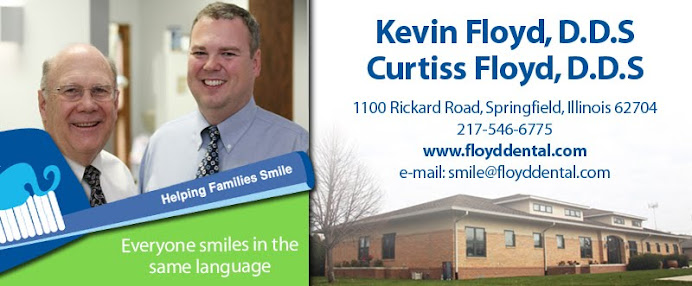A. Parent Health
Continued monitoring of mother by physician is critical to both mother and baby.
B. Baby's Health
Baby should be throughly examined by the family physician or pediatrician. Congenital birth defects should be diagnosed and refered for proper treatment - this would include dental.
C. Fluorides
Fluoride supplements for forming teeth will likely be recommended and can be prescribed by the M.D. or D.D.S.. Most public water supplies are fluoridated, however baby must drink one liter of water daily to get optimal benefit.
D. Sucking
While breast feeding is optimal, bottle feeding is acceptable if certain precautions are taken. Avoid free flowing nipples that could produce a reverse swallow as baby tries to keep from drowning. This can cause orthodontic problems as baby's teeth erupt. Check the nipples frequently for tears that could cause choking. As for fingers vs. pacifiers, a pacifier habit is easier to break.
E. Diet
During the first year of life, growth is greater than ever occurs again. the rapid growth and metabolism require ample supply of growth and energy nutrients. Human milk is tailored special to your baby's nutritional needs in terms of calories, protien, vitamins and minerals. Breast milk also contains antibodies against intestinal and other infections which can threaten a young infant. It is easily digested with the least risk of allergic reaction, diarrhea or stomach upset.
Supplements - Generally, it is recommended that the breast fed infant be given supplements of iron, vitamin D, and, if not in the water supply, fluoride. Multivitamin drops with iron and fluoride can be prescribed by the physician or dentist. Ask for one that does not have sugar.
Other foods - Up to the age of 4-6 months, baby's nutritional needs can generally be fully met by breast milk and the vitamin/mineral supplement. if for some reason, mother is unable or does not wish to breast feed, a comercially prepared infant formula with iron may be used. Vitamin drops with fluoride should also be prescribed if fluoride is not found in the water supply. Sugar, sucrose, syrup or honey should not be added to the formula or to baby's water. If teething devices are used, sugar-containing substances (such as cookies) should be avoided. Baby should never be put to bed with a bottle. If this is ever done, water only should be put in the bottle.
F. Sleeping
One of the most important influences on how baby developes both physically and dentally is how baby sleeps and is carried during the first months of life. A baby that is carried as well as sleeps on its back does not place unnecessary pressures on developing bones of the face and back. Orthopedic surgeons and orthodontists have long shaped bone by outside pressures. If baby sleeps on its back, full genetic potential can be reached. Swaddling and modern papoose carriers have long been found to be excellent ways to not only nurture baby, help baby develope a straight posture, but also keep fingers out of the mouth that cause dental mal occlusions. In more recent years peditricians have found a higher incidence of SIDS in babys that sleep on their stomachs(prone position), and therefore are encouraging back (supine position) sleeping.
Next time: Six to Twelve Months.
Wednesday, June 9, 2010
Subscribe to:
Post Comments (Atom)


No comments:
Post a Comment